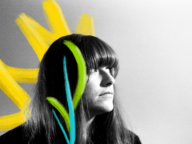A few months before my university graduation, I started to feel anxious: my social circles were shifting.
A few of my peers had already graduated and moved away, and my closest friends were younger, sitting comfortably in the middle of their undergrads.
“Oh yes,” said my mentor. “You’re entering that post-grad transition period. I’m in it too––it sucks.”
I felt very much alone, even though there were other people around me in the same life stage: that post-university-being-in-your-20s stage with so.much.change.
What made all the transitions scarier was the reality that the friends who had journeyed with me during the past four years of university weren’t necessarily going to be there as I jumped into the next stage of life.
Many of them weren’t in fact there. And although I initially felt some grief and sadness over this loss, I’ve learned that it’s okay for friendships to end or change. I ended up seeing God provide new connections, heal my heart over lost ones, and give clarity to the type of friends I want to invest in.
Your friendships will change
I’ve since learned (and experienced) that there are three types of friends:
- circumstantial friendship (we’re friends because we study or work together)
- seasonal friendship (we’re friends because we’re in the same season, such as university)
- long-term friendship (we’re friends through many seasons, changes, and stages of life)
Circumstantial and seasonal friendships, while they can be short, can also be extremely meaningful. It’s important to invest in them, regardless of how long you stay connected.
Having said that, it’s also okay to let people go as you naturally drift apart. Sometimes we expect certain people to be long-term friends, but then things shift and it doesn’t turn out that way. That can cause real grief and a sense of loss.
Read more: 5 encouragements for when best friends drift apart
That was my experience. After graduation, my friends either moved away or, as our lives went in very different directions, there wasn’t much holding us together anymore.
It’s normal in your mid-20s to feel unsettled as you start new jobs, move to new places, and meet new people. Your friendships will change. It’s inevitable.
Letting go will be necessary
My mom has told me my whole life: “Erin, you can’t do everything.” She’s right. I’ve learned that her wisdom applies to my friendships as well. You can’t be friends with everyone, and sometimes you need to let people go so that you both can grow and thrive in new places.
Freeing myself from the burden of feeling like I needed connectedness with everyone gave me more space to deeply invest in the people God has placed before me.
You can’t be friends with everyone.
What’s humbling is that as you choose which friends you want to invest in, they are going through the same process. There’s a chance they may not choose you.
Change is hard. But even if a friendship looks different in the future, it can still be good—just different. Even if you talk to a friend just once a year to catch up, it can still be deeply rewarding and encouraging, even if it’s not the same level of relational intensity that you once had.
Characteristics to look for
So how do we know which friends to choose and invest in? It’s not an easy question––especially when we don’t know who will choose us.
Here are some criteria that have helped me invest and let go wisely.
Emotional maturity
Look for friends who can handle situations without unnecessarily escalating them. Instead of blaming others for their problems, people with emotional maturity accept responsibility and are willing to change their behaviour to resolve an issue.
Commonality
If you don’t have anything in common, you won’t naturally be drawn together. This can often start with surface interests, but at some point there needs to be something deeper tying you together. Often that foundation can be faith. But it can also be similar life stages, geography, communities, or passions.
Resilience
Resilient friends are able to bounce back and re-engage through change, loss, or trial. Some friends just stick with you, regardless of life stage. They end up being incredible gifts of grace from God.
Read more: Growing up an ocean apart didn’t stop us from being sisters
We often don’t know who these friends will be from the beginning, but when we look back, we see the evidence of their proven friendship over time.
Reciprocal
Relationships can’t exist one-sided. I’m someone who tends to initiate a lot of conversations and activities, so I’ve found myself in friendships where I’ve done most of the work. But it’s not realistic to carry the burden and weight of a relationship solely on your own shoulders.
Again, healthy long-term friendships involve a “choosing” of each other on both sides. There may be some seasons and periods where one person will reach out more than the other, but it should be balanced over time.
Start with grace and gratitude
What can help in navigating the stress and messiness of changing friendships is to accept that you will change too. When you shift into a different life stage, you will go through drastic developments, and it may not be possible to remain friends with certain people.
Wondering who your friends are? Look around.
Who has God placed in your life in this season or circumstance? Start there.
Invest wisely and love deeply, even if you don’t know yet who will stick with you.
Walk in faith, knowing the right long-term friends will surface in time.
Who has God placed in your life in this season or circumstance?
If you need clarity or closure on a friendship that has somewhat expired, it may be helpful to have a conversation with them. This may give them and yourself freedom to move forward without each other.
If you already see some long-term friends in your life, show gratitude and continue to choose each other. Relationships take effort—which is so worth the investment.
[Editor’s note: This is a condensed version of a previous blog article. Read Erin’s full reflections on How to choose long-term friends.]
"*" indicates required fields
Share this!
About the Author





